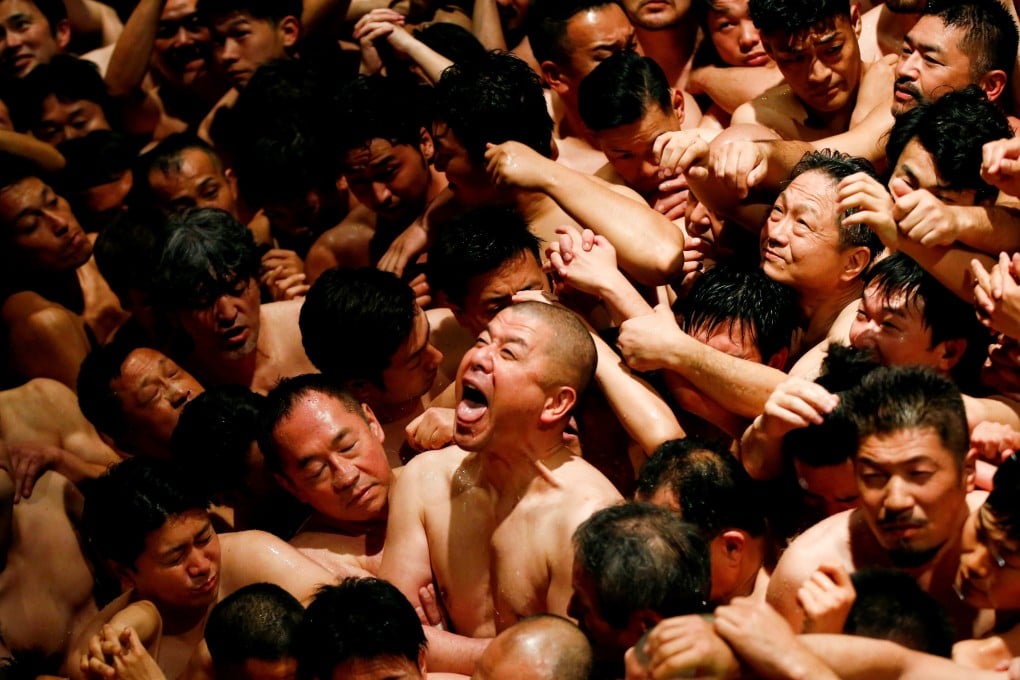Fewer moons at Lunar New Year as coronavirus hits Japan’s Naked Man Festival
- Japan’s Saidaiji Eyo festival to mark Lunar New Year dates back 1,000 years and features men in loincloths jostling for talismans flung from a temple
- Up to 10,000 men typically take part, but this year only past winners will attend a symbolic ceremony. Still, there will be a cheeky photo competition

Elders at the Saidaiji Kannonin Temple, in Okayama prefecture in central Japan, have opted to curtail an event that can trace its history back nearly 1,000 years and typically attracts upwards of 10,000 jostling men clad only in the “fundoshi” loincloths more commonly worn by sumo wrestlers.
The Saidaiji Eyo festival – also known as the Naked Man Festival – will be held on February 20, the temple has confirmed, but in a very different format.
“In a usual year we get more than 10,000 men taking part, but this year it was decided that it is just too dangerous to go ahead because of the coronavirus,” said Yuji Omori, a spokesman for the temple.
“Never before have we had to do anything like this and it went ahead even during the war years,” he said. “But this is different.”
Though last year’s festival was held after the outbreak of the coronavirus, the pandemic was still in its early stages and proceedings went ahead largely as normal.